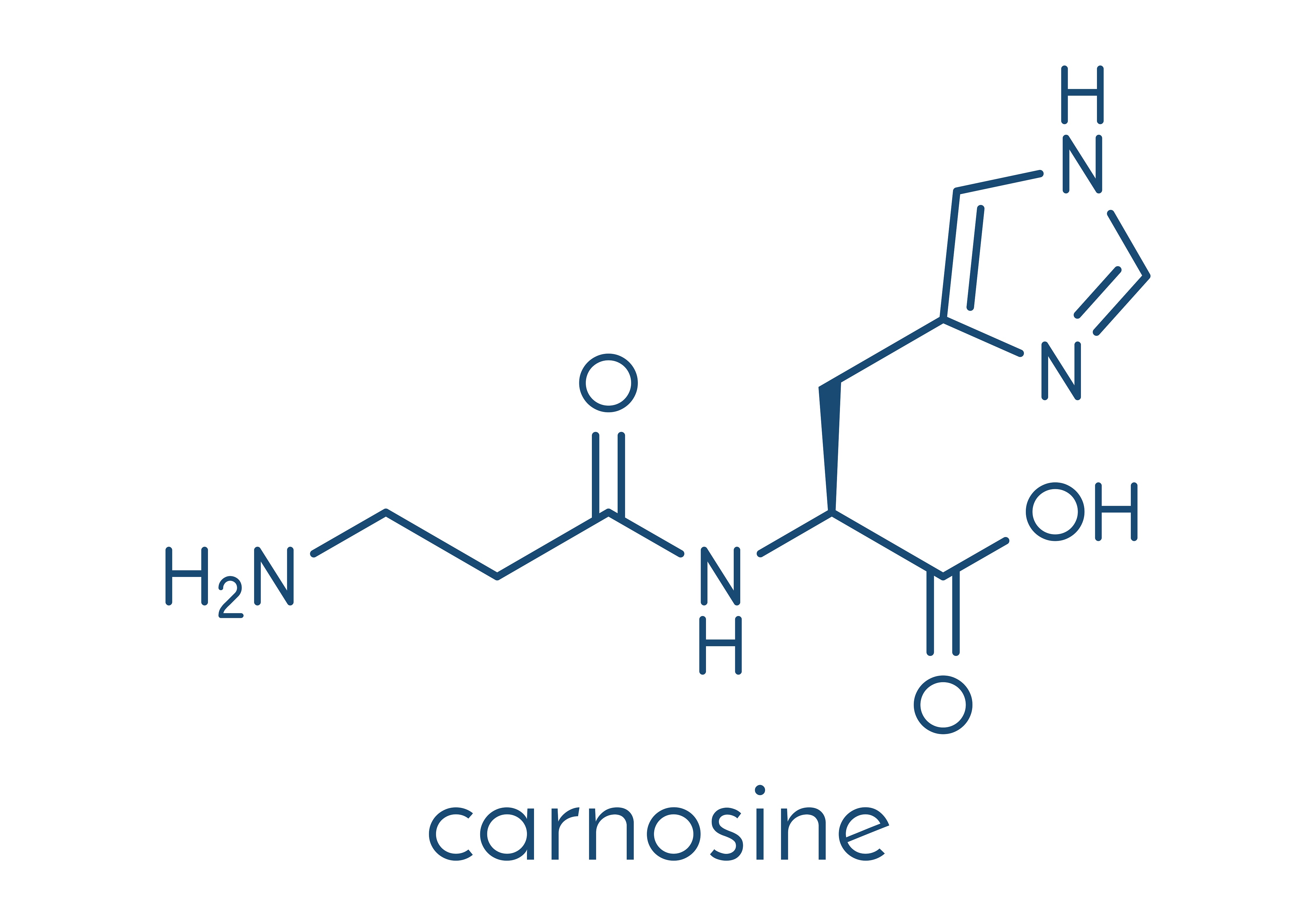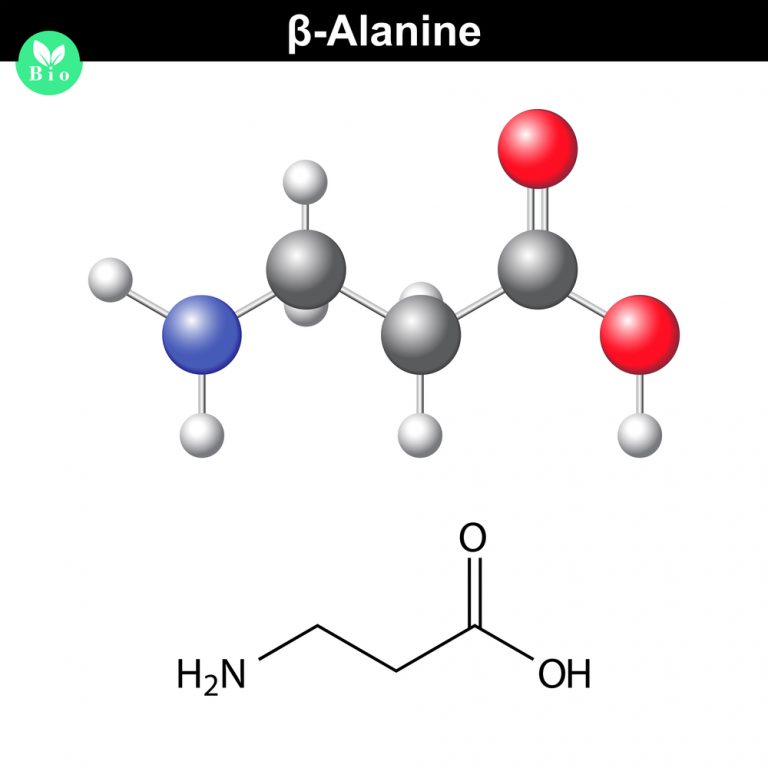Beta-alanine belongs to ergogenic supplements. The chemical structure, BA (beta-alanine) belongs to the amino acid group, but it does not build proteins. On the other hand, it’s a precursor of carnosine, which in the human body shows a number of biological functions. The action of BA is in a specific, temporary sense. However, as it turns out, characteristic pinching and itching does not prove that it fulfils its role, and is merely a harmless side effect associated with the activation of the nervous system. In athletes' supplements, it’s a monopreparatation, as a component of creatine stacks, or pre-workout formulas, where it’s used synergistically with other ingredients.
Role in the athlete's body and safety
Beta-alanine in the human body is responsible for a number of functions that are related to muscle performance and endurance. This action is due to carnosine, which is stored in muscle tissue. Carnosine, like creatine phosphate, is stored in muscle tissue. The proper level of its cumulation shows a number of functions:
- Adjusts pH
- Delays the occurrence of lactic acid
- Transports hydrogen ions
- Promotes muscle strength
- Shortens intervals between series
- Supports regeneration
- Improves muscle contraction
- It supports long-term effort, we can train longer and more intensely
In addition, carnosine has a strong antioxidant effect which will result in effective neutralization of free radicals. Such action will translate into better protection of muscle tissue, which will prevent its excessive catabolism.
In beta-alanine research, volunteers received it for 12 weeks, followed by biochemical blood counts. As it turned out, the analysis of the results showed that BA did not affect the parameters of liver, kidney, immune system or heart function. It can be assumed that supplementation with this agent has no negative impact on our body and can be successfully used in supplementation.
Beta-alanine, does it work ad-hoc?
Among people using beta-alanine, we can meet with opinions that indicate its adventitious action, i.e. intake of Beta Alanine portions, to translate into improvement of strength or strength parameters directly on the training. Many people attribute it to stimulating, motivating and improving the body's performance from the first dose. Unfortunately, this action is quite questionable, and the mechanism of beta-alanine's effect on the body itself is somewhat different. As mentioned earlier, Beta Alanineąs activity is similar to that of creatine and carnosine accumulation in muscle tissue is required so that its effects can be recorded. This means that it takes some time for the body to react sensibly to us for beta-alanine supplementation.
Probably, the feelings associated with ad-hoc action, are related to characteristic itching and pinching, which can in some way affect the behaviour of the individual. However, this supplement does not show a stimulating effect on the nervous system nor is it a precursor of nitric oxide. So all such opinions and revelations should be treated with a grain of salt.

Effective dosage
The dosage of beta-alanine depends on the type of sport activity and the purpose of supplementation itself. It’s customary, however, to use it in training periods. The doses used by athletes oscillate within 3g per serving before and after exercise.
Some athletes prefer to take a dose of 5-6g immediately before training, without adding beta-alanine during the exercise period. On days without strength training, you should take a similar amount at the time of day.
The supplementation period usually is about 12 weeks. Experienced athletes, however, use supplements for that period of time until they feel they are doing their job.
What to combine it with to get a stronger effect
Beta-alanine supports the effect of creatine. Both substances, through specific muscle action and energy management, improve its endurance, strength and performance. This means that the combination of these two substances will translate into a much better anabolic effect for our body.
For example: both creatine and carnosine are responsible for the muscular endurance effect. By acting on the drainage of hydrogen ions, they effectively support the long-term work of the muscle, improving its regeneration interval between bursts and effective operation.
Summary
Beta-alanine is undoubtedly a substance that actually supports physical activity. Its effect is confirmed by numerous scientific studies and the opinions of people testing supplements based on this amino acid. Effective support mainly, during continuous work, endurance is undoubtedly good information for people who practice endurance sports or SW. However, bodybuilders and strength trainers will also benefit from supplementation.






